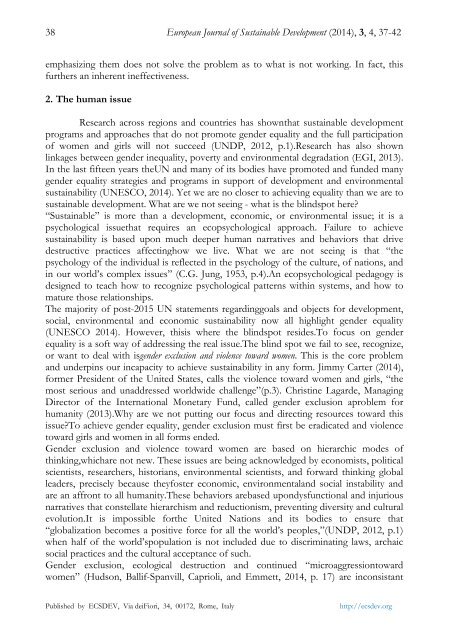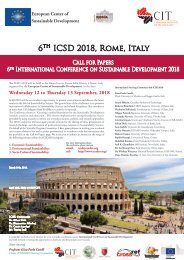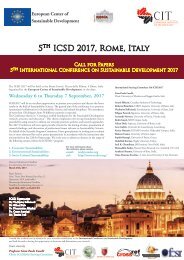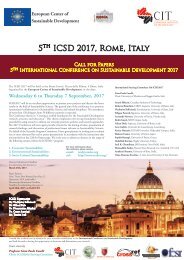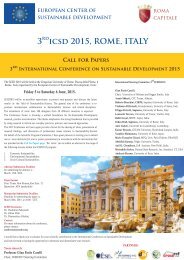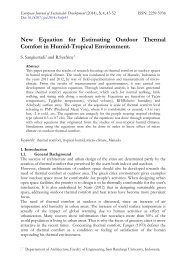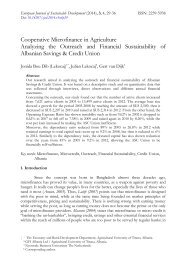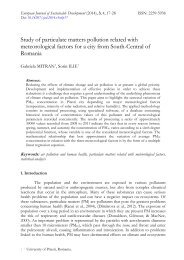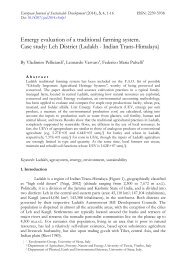An Ecopsychological Perspective on Sustainability: The BlindSpot
As the 2015 deadline for the United Nation’s Millennium Development Goals (MDGs) approaches many of the goals and objectives for education, the development agenda and sustainability have not and will not be met.This suggests something is not working – there is a blind spot.The inability to achieve sustainability is based upon much deeper human narratives and behaviors that drive destructive practices: gender exclusion and violence toward women areamong these two core drivers. An ecopsychological education aims to exposeandtransform deeply rooted unconscious narratives that underlie human practices, policies, and decisionsabout how we respond toour world in both creative and destructive ways. Key words: ecopsychology, pedagogy, sustainability, gender, sustainable development, ecology, psychology, narrative
As the 2015 deadline for the United Nation’s Millennium Development Goals (MDGs) approaches many of the goals and objectives for education, the development agenda and
sustainability have not and will not be met.This suggests something is not working – there is a blind spot.The inability to achieve sustainability is based upon much deeper human
narratives and behaviors that drive destructive practices: gender exclusion and violence toward women areamong these two core drivers. An ecopsychological education aims to exposeandtransform deeply rooted unconscious narratives that underlie human practices, policies, and decisionsabout how we respond toour world in both creative and destructive
ways.
Key words: ecopsychology, pedagogy, sustainability, gender, sustainable development, ecology, psychology, narrative
You also want an ePaper? Increase the reach of your titles
YUMPU automatically turns print PDFs into web optimized ePapers that Google loves.
38 European Journal of Sustainable Development (2014), 3, 4, 37-42<br />
emphasizing them does not solve the problem as to what is not working. In fact, this<br />
furthers an inherent ineffectiveness.<br />
2. <strong>The</strong> human issue<br />
Research across regi<strong>on</strong>s and countries has shownthat sustainable development<br />
programs and approaches that do not promote gender equality and the full participati<strong>on</strong><br />
of women and girls will not succeed (UNDP, 2012, p.1).Research has also shown<br />
linkages between gender inequality, poverty and envir<strong>on</strong>mental degradati<strong>on</strong> (EGI, 2013).<br />
In the last fifteen years theUN and many of its bodies have promoted and funded many<br />
gender equality strategies and programs in support of development and envir<strong>on</strong>mental<br />
sustainability (UNESCO, 2014). Yet we are no closer to achieving equality than we are to<br />
sustainable development. What are we not seeing - what is the blindspot here<br />
“Sustainable” is more than a development, ec<strong>on</strong>omic, or envir<strong>on</strong>mental issue; it is a<br />
psychological issuethat requires an ecopsychological approach. Failure to achieve<br />
sustainability is based up<strong>on</strong> much deeper human narratives and behaviors that drive<br />
destructive practices affectinghow we live. What we are not seeing is that “the<br />
psychology of the individual is reflected in the psychology of the culture, of nati<strong>on</strong>s, and<br />
in our world’s complex issues” (C.G. Jung, 1953, p.4).<str<strong>on</strong>g>An</str<strong>on</strong>g> ecopsychological pedagogy is<br />
designed to teach how to recognize psychological patterns within systems, and how to<br />
mature those relati<strong>on</strong>ships.<br />
<strong>The</strong> majority of post-2015 UN statements regardinggoals and objects for development,<br />
social, envir<strong>on</strong>mental and ec<strong>on</strong>omic sustainability now all highlight gender equality<br />
(UNESCO 2014). However, thisis where the blindspot resides.To focus <strong>on</strong> gender<br />
equality is a soft way of addressing the real issue.<strong>The</strong> blind spot we fail to see, recognize,<br />
or want to deal with isgender exclusi<strong>on</strong> and violence toward women. This is the core problem<br />
and underpins our incapacity to achieve sustainability in any form. Jimmy Carter (2014),<br />
former President of the United States, calls the violence toward women and girls, “the<br />
most serious and unaddressed worldwide challenge”(p.3). Christine Lagarde, Managing<br />
Director of the Internati<strong>on</strong>al M<strong>on</strong>etary Fund, called gender exclusi<strong>on</strong> aproblem for<br />
humanity (2013).Why are we not putting our focus and directing resources toward this<br />
issueTo achieve gender equality, gender exclusi<strong>on</strong> must first be eradicated and violence<br />
toward girls and women in all forms ended.<br />
Gender exclusi<strong>on</strong> and violence toward women are based <strong>on</strong> hierarchic modes of<br />
thinking,whichare not new. <strong>The</strong>se issues are being acknowledged by ec<strong>on</strong>omists, political<br />
scientists, researchers, historians, envir<strong>on</strong>mental scientists, and forward thinking global<br />
leaders, precisely because theyfoster ec<strong>on</strong>omic, envir<strong>on</strong>mentaland social instability and<br />
are an affr<strong>on</strong>t to all humanity.<strong>The</strong>se behaviors arebased up<strong>on</strong>dysfuncti<strong>on</strong>al and injurious<br />
narratives that c<strong>on</strong>stellate hierarchism and reducti<strong>on</strong>ism, preventing diversity and cultural<br />
evoluti<strong>on</strong>.It is impossible forthe United Nati<strong>on</strong>s and its bodies to ensure that<br />
“globalizati<strong>on</strong> becomes a positive force for all the world’s peoples,”(UNDP, 2012, p.1)<br />
when half of the world’spopulati<strong>on</strong> is not included due to discriminating laws, archaic<br />
social practices and the cultural acceptance of such.<br />
Gender exclusi<strong>on</strong>, ecological destructi<strong>on</strong> and c<strong>on</strong>tinued “microaggressi<strong>on</strong>toward<br />
women” (Huds<strong>on</strong>, Ballif-Spanvill, Caprioli, and Emmett, 2014, p. 17) are inc<strong>on</strong>sistant<br />
Published by ECSDEV, Via deiFiori, 34, 00172, Rome, Italy<br />
http://ecsdev.org


